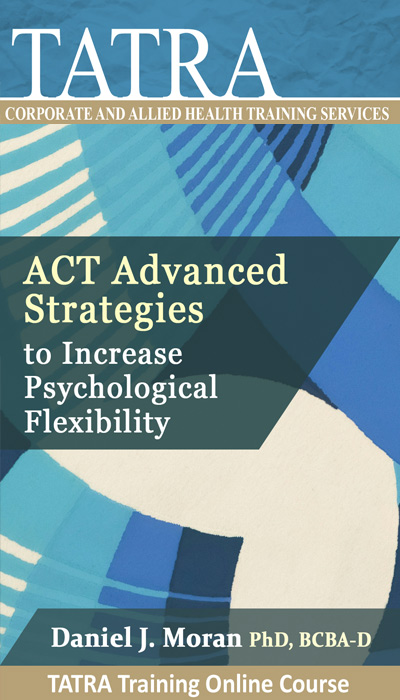07 Sep ACT Advanced Strategies to Increase Psychological Flexibility: Case Conceptualizations

ACT is becoming an increasingly popular therapy approach for its relative versatility and rich toolset, which can be applied alongside virtually any therapeutic orientation. This course delves into the core principles and strategies of Acceptance and Commitment Therapy (ACT), a versatile and evidence-based approach to psychotherapy that empowers clients to harness their strengths and overcome adversity.
In this training, participants will focus on increasing clients’ psychological flexibility—the ability to stay present and open to experiences while pursuing meaningful actions. You’ll not only review the ACT model but also explore the key elements that contribute to psychological inflexibility in clients, which often underlies behavioural and emotional issues.
A special emphasis will be placed on the “ACT Inflexahex,” a case conceptualization framework developed by Bach & Moran (2008), which identifies clinically relevant factors contributing to psychological rigidity. You’ll learn to apply this model to real-world cases involving trauma, substance use, anxiety, and depression, providing a deeper understanding of how these factors manifest and affect clients’ mental health.
Throughout the course, case studies and practical examples will enhance your learning experience. You will examine actual clinical cases and analyze them using the Inflexahex, focusing on both the six components of psychological flexibility (acceptance, perspective-taking, values, defusion, committed action, and contacting the present moment) and the six components of psychological inflexibility (experiential avoidance, self-as-content, lack of values clarity, cognitive fusion, impulsivity/inactivity, and domination by past and future concepts).


This training will provide participants clinical knowledge and tools to:
a). Learn and describe the six basic components of psychological flexibility.
b). Discuss and apply the six components of psychological inflexibility.
c). Recognise and describe the problem of fusion in clinical work.
d). Recognise and describe the problem of experiential avoidance in clinical work.
e). Recognise and describe the problem of weak self-knowledge in clinical work.
f). Recognise and describe the problem of lacking values clarity in clinical work.
g). Learn and describe how ACT undermines problematic language functions.
h). Learn and apply the Inflexahex case conceptualization approach to assess for psychological inflexibility.
Target Audience:
Mental Health Clinicians & Therapists, Social Workers, Psychologists, Marriage & Family Therapists, Counselors, School Personnel, and Healthcare Workers.


This online workshop will give you instant access to the course video content, accessible via streaming on our website, as well as downloadable slide deck. You can view the course content in your own time, there is no time limit on access. The duration of this online course is 6 learning hours.
Please click the green ‘Mark Complete’ button on each module as you progress.
A certificate of completion will be generated upon finishing the course and completing a short assessment quiz. If the certificate is not showing, please confirm you have marked all sections as ‘Complete’. Please consult your professional organisation/association to confirm whether you are able to claim any CPD points/hours for this online workshop.



 Dr. Daniel J. Moran is the founder of Pickslyde Consulting, an organisation dedicated to using evidence-based practices to enhance leadership, performance, safety, and wellness in the workplace. His organisation has also trained tens of thousands of people in Acceptance and Commitment Therapy (ACT) and other evidence-based treatment approaches. Additionally, he is an associate professor at Touro University and co-founder of its Doctor of Psychology programme in New York City.
Dr. Daniel J. Moran is the founder of Pickslyde Consulting, an organisation dedicated to using evidence-based practices to enhance leadership, performance, safety, and wellness in the workplace. His organisation has also trained tens of thousands of people in Acceptance and Commitment Therapy (ACT) and other evidence-based treatment approaches. Additionally, he is an associate professor at Touro University and co-founder of its Doctor of Psychology programme in New York City.